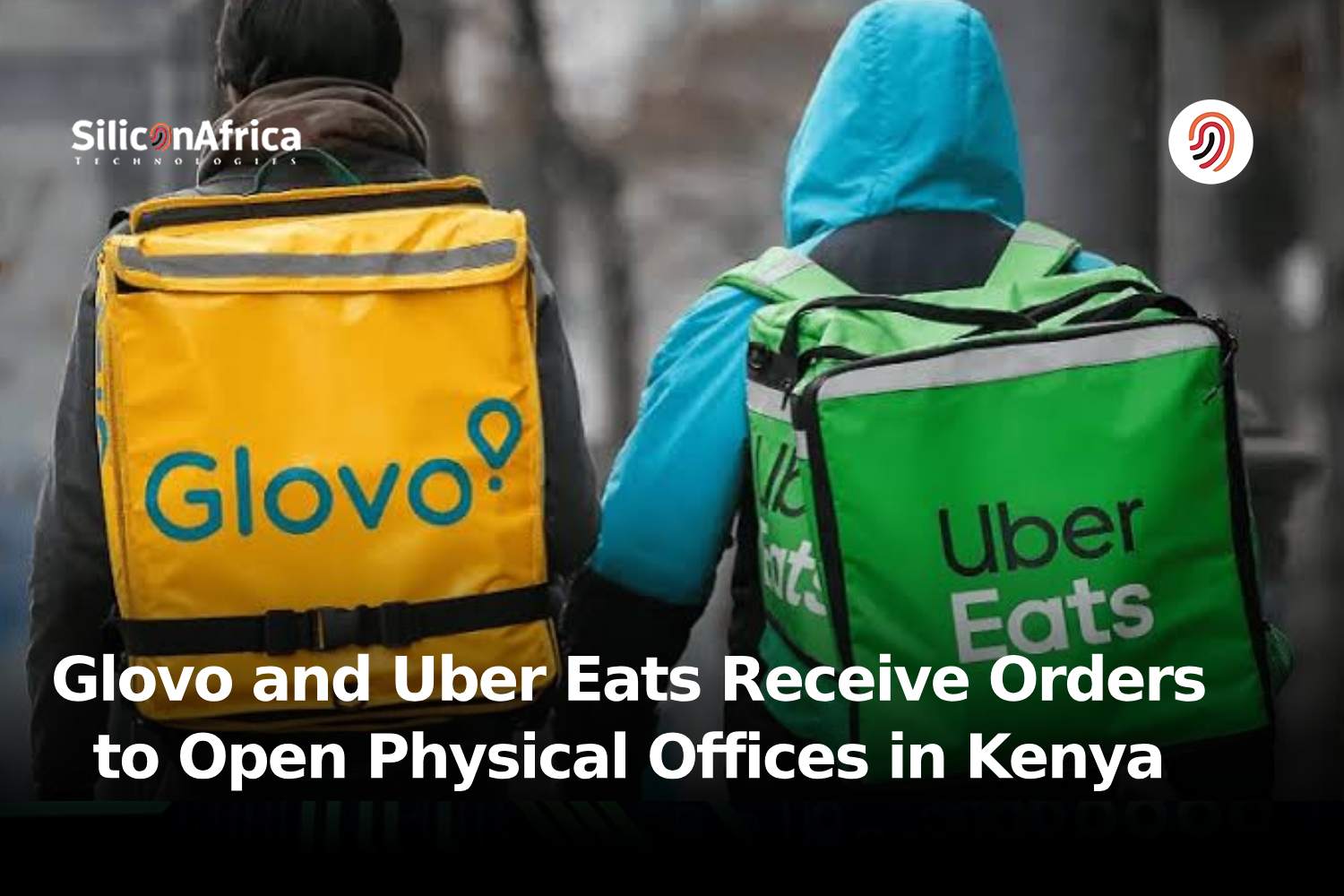Newsletter Subscribe
Enter your email address below and subscribe to our newsletter

The Kenyan business landscape will be getting increasingly congested, with two global food distribution firms, Glovo and Uber Eats being notified to have physical outlets in the nation.
Named the Country’s fair market practices overseer, Competition Authority of Kenya (CAK) has compelled Glovo and Uber Eats to start up outlets in Kenya.

For these companies that are used to running their businesses remotely, this is a significant change.
The CAK’s decision stems from a recent investigation into customer complaint resolution processes within the food delivery sector.
The investigation shows that many complaints are taking too long to resolve when it comes to Glovo and Uber Eats, leading to a lot of frustration and dissatisfaction among consumers in Kenya.
The CAK identified that the absence of physical offices in Kenya was the primary reason for the slow complaints resolution process.
It is difficult for clients to reach company representatives immediately since there are no offices to visit physically, enabling them to air their views; hence, they may feel like their hands are tied.
Consequently, they may feel like nobody cares about their problems.
“Our investigation identified a clear correlation between the absence of physical offices and the delays in resolving customer complaints,” stated a spokesperson for the CAK. “By establishing a local presence, Glovo and Uber Eats will be better positioned to ensure their customer service channels are efficient and responsive to the needs of Kenyan consumers.”
The directive from the Communication Authority of Kenya (CAK) is a progressive move towards enhancing consumers’ protection in the fast-growing digital marketplace in Kenya.
The past few years have seen a dramatic increase in e-commerce, especially regarding online food ordering and delivery services.
Even though this expansion is beneficial for the country’s economy, it requires proper measures to ensure that the rights of consumers are safeguarded.
Having an office in Kenya will enable Glovo and Uber eats to have specific teams that can deal with issues instantly.
This can include local telephone contacts, emails meant specifically for negative feedback and actual physical walk-in offices for people who would rather be served while they are with the company face-to-face.
Read More: Ride-hailing Giant Uber is Set to Invest in Moove
Though nobody can say for sure what would happen in the future as a result of the decision by CAK, it would be quite expensive if Glovo and Uber Eats were to set up a physical office in Kenya.
Among other things, such costs would cover rent paid on an office space as well as cost of hiring employees who are Kenyans, whereas at the same time having to establish customer service from scratch.
Yet, one may choose to interpret those expenses as a means of developing better interaction with clients residing in Kenya, thereby enhancing trust.
The satisfaction level by consumers can tremendously rise due to improving the complaining procedure, which is uncomplicated and effective at the same time.
This will enable them to partner with local breweries, eateries as well as courier services within the country hence reducing transport costs among others.
The CAK’s decision regarding Glovo and UberEats could set a precedent for other international companies operating in Kenya’s digital space.
The ruling sends a clear message that Kenyan authorities prioritize consumer protection and advocate for efficient grievance redressal mechanisms.
As Kenya’s e-commerce sector continues to flourish, it will be interesting to see if this ruling becomes a springboard for stricter regulations requiring foreign companies to establish a local foothold.
This could have a significant impact on how international businesses operate within the Kenyan market.
The move by the CAK is a reminder of the evolving dynamics in the globalized business landscape.
While remote operations offer convenience and cost-effectiveness, a physical presence can be crucial for building trust, ensuring efficient customer service, and complying with local regulations.
As Kenya, and other African nations, assert their positions in the digital age, the days of solely remote operations for international companies may be numbered.
Was this information useful? Drop a nice comment below. You can also check out other useful contents by following us on X/Twitter @siliconafritech, Instagram @ Siliconafricatech, or Facebook @ Silicon Africa.